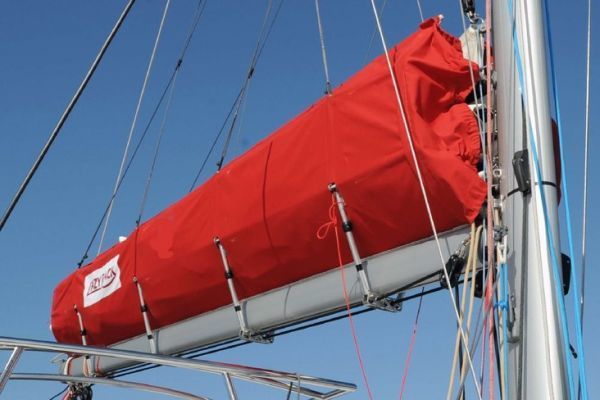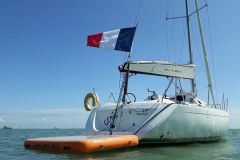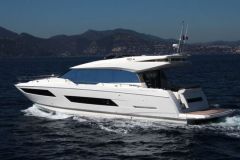Managing the mainsail, for hoisting or lowering, but especially for its protection, can pose problems. The bigger the boat and the higher the boom, the more difficult it is. So much so that on some boats, you have to send someone to walk on the boom to get there. This is also why we often see mainsails "slumped" in the booms, without any protection at anchor. Based on this observation and sailing a catamaran with a fly, Frederic Bourderau imagined the Lazy Rack.
Can be used on all sailboats

The Lazy Rack is a system to manage the mainsail when it is not a boom or a furling mast. The system can be installed on all booms, using the slide rail underneath. 4 articulated rigid arms ensure the holding of a canvas, completed by rushes.
Hoisting without taking care of the slats
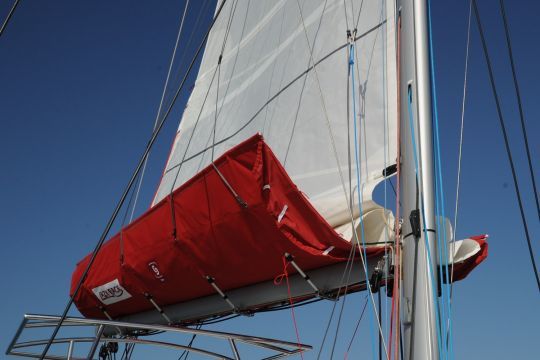
Managed by a single rope that can be brought back to the cockpit or helm station, this Lazy Rack opens, by slackening the end, when hoisting the mainsail. This way, the lazy racks are well spread out, which prevents the battens from getting caught in them.
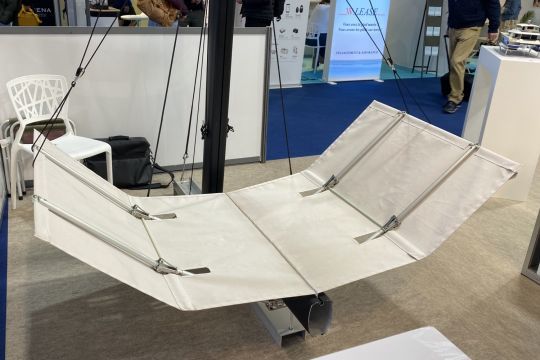
Browsing and forgetting the lazy
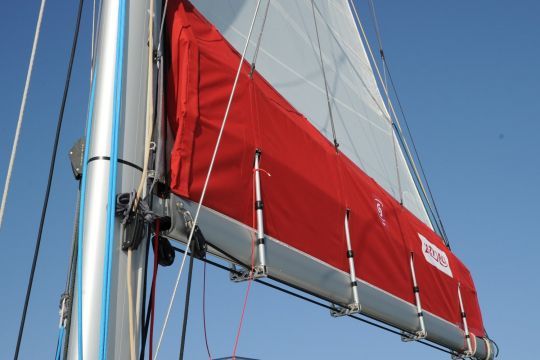
When sailing, the rope is tightened and the Lazy Rack is placed neatly on the sail. This eliminates any clutter and dunnage, even on a reefed mainsail.
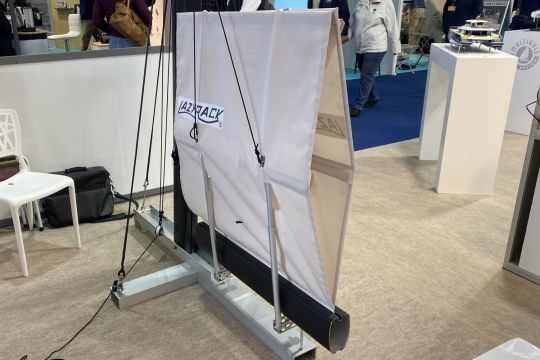
Carefree flapping
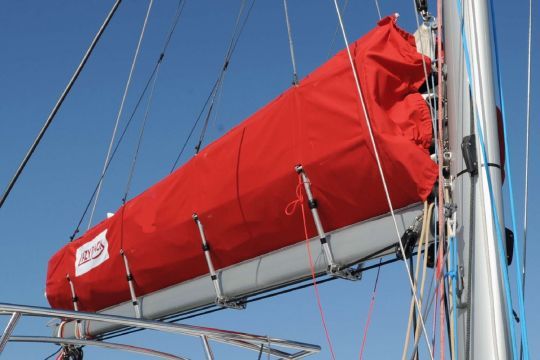
Finally, when it's time to lower the boat, the lazy rack opens naturally by shocking its maneuver and the mainsail naturally finds its place inside this large receptacle, held open by the rigid arms. Without any manual intervention or acrobatics!
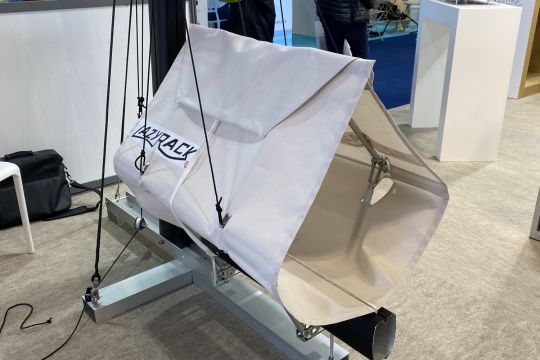
A flap is placed on top with clips, the end of which are leaded straps to be easily "thrown" over the sail, even if it is high. Inside, the sail is totally protected from UV.
Now available
This system, which is mainly intended for large units or catamarans, is starting to be marketed. It costs about 3,900 euros HT for a 46-foot boat.

 /
/ 